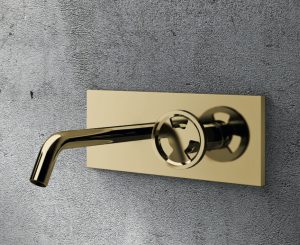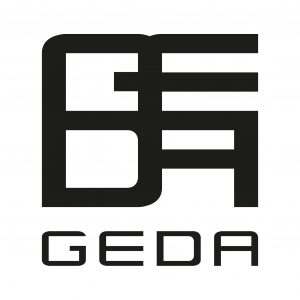Materials
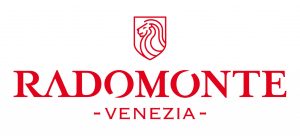
Radomonte – Stainless Steel 316
Steel is an alloy consisting of iron, carbon, chromium, nickel and other elements. It is thanks to chromium and nickel that steel becomes stainless steel, with percentages ranging in composition between 12% and 30% for chromium and up to 35% for nickel. The variation of these percentages means that the steel variants available only to AISL 316L stainless steel.
The Advantages of Stainless Steel
Stainless Steel is a practical and resistant material. For this reason, it is used for the production of products in continuous contact with water or subjected to mechanical shocks. It is therefore extremely functional and adapts to any use.
The main advantages of stainless steel
-
durability and resistance
-
does not rust or deform
-
it is resistant to corrosion
-
it is very easy to clean
-
does not contaminate the elements
-
it is not a good conductor of heat
-
it is inert in contact with chemicals
-
it is hygienic and ecological
-
it is completely recyclable
Biological studies have highlighted the exceptional hygienic advantages of stainless steel compared to other types of surfaces. The pore free surface leaves no chance for bacteria to survive. This also explains why it is used wherever maximum cleaning is required such as industrial kitchens, laboratories-so why not use it in your home.
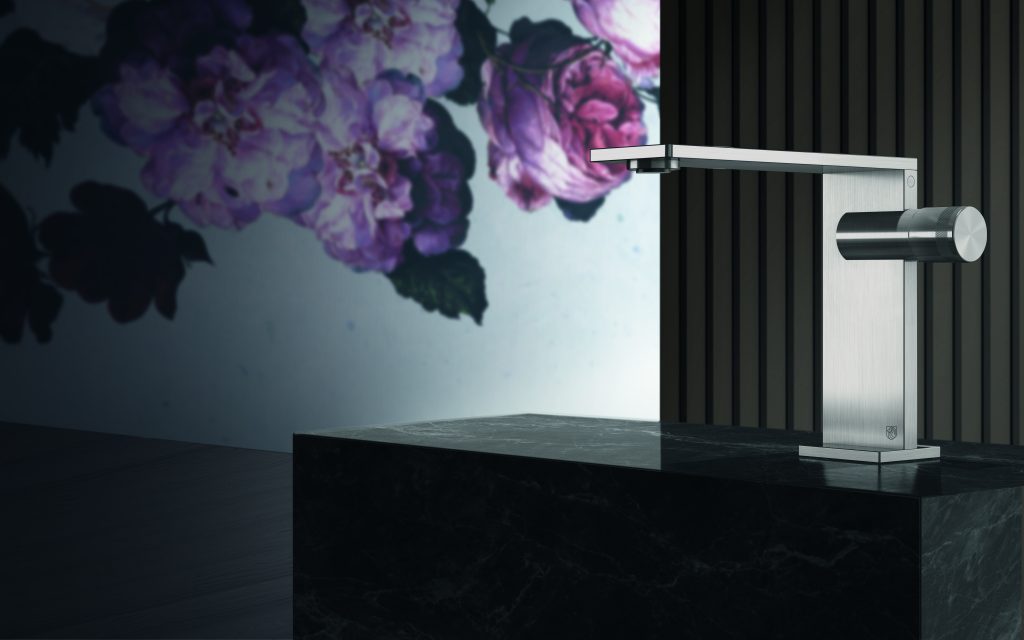
Radomonte – Murano Glass
Murano Glass can only be made in Venice Italy using specific methods and techniques used by Murano Glass artisans which go back as far as the 13th Century. When Murano artisans make glassware, they use various minerals to give colour to the glass mass. As the glass mass gets heated the minerals melt and give transparent glass specific colours, such as blue from cobalt or red from gold, green from iron and pink from manganese.
When Masters create Murano Glass by hand, they do not use exact measurements or machines therefore two items of the same model may vary making each piece unique. Masters take pride in following the techniques and traditions of their fathers and grandfathers, with no modern technology.
Radomonte use glass for the ecological qualities. Glass is non-toxic, because it is composed only of natural substances. It is resistant, hygienic and 100% recyclable. Furthermore, for its recycling, it requires lower melting temperatures with consequent energy savings in processing.
Radomonte uses Murano Glass Handles in 2 of its collections. Dorin, Ice and Amber handles and Miro Black Handles
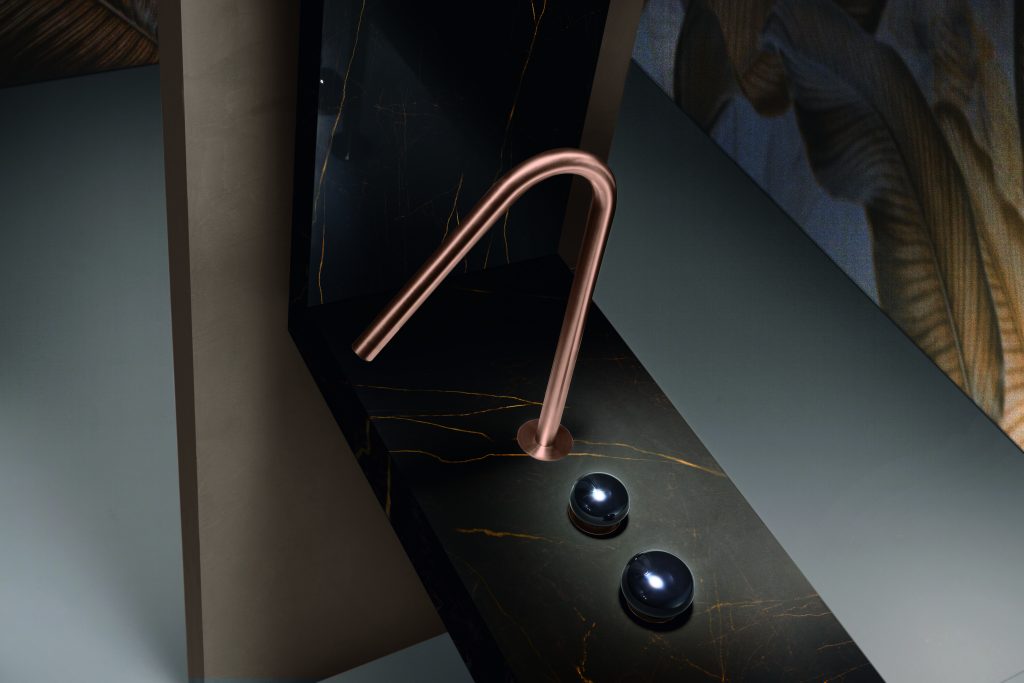
Finishes

Radomonte Finishes
Radomonte collections are made of stainless steel in brushed or polished finish.
Brushed steel is also available in gold, bronzo, rosee and carbon PVD finishes.
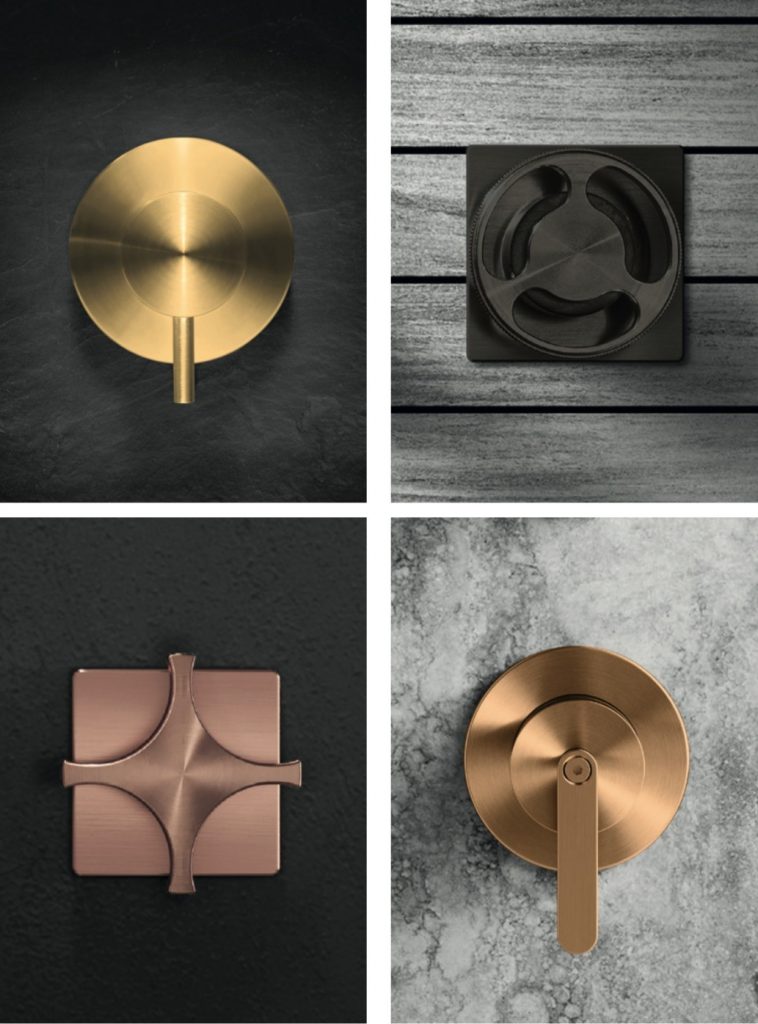
Physical Vapor Deposition (PVD) is a superior quality process that creates a very thin film (0.5 micron) on the surface of the product.
The process is carried out in a vacuum chamber at a very high temperature and is known as a “line of sight” technique, meaning that the atoms that are vaporized from the solid material travel through the vacuum chamber and embed themselves into whatever object is in its path. Therefore, in order to coat the proper location of the object, this must be positioned in the chamber appropriately or rotated during deposition, to be completely coated.
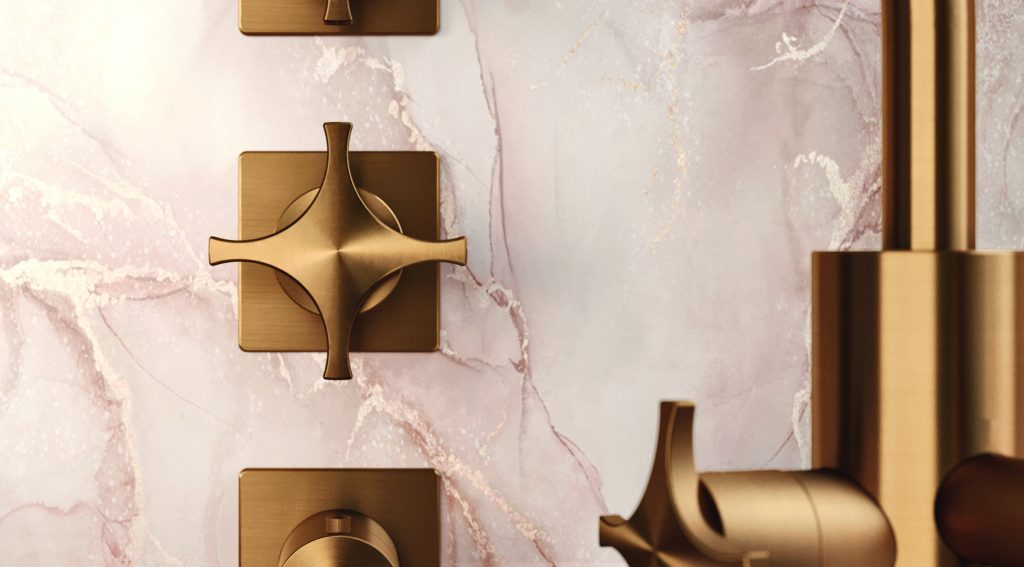
Common PVD coating materials are titanium, zirconium and aluminium, combined into different proportion as to obtain different colours and shades. These combinations also allow to obtain very high surface hardness, resistance to salt spray, corrosion and aggression from atmospheric agents, products for industrial use (Solvents) and household products (various detergents) above the common standards.
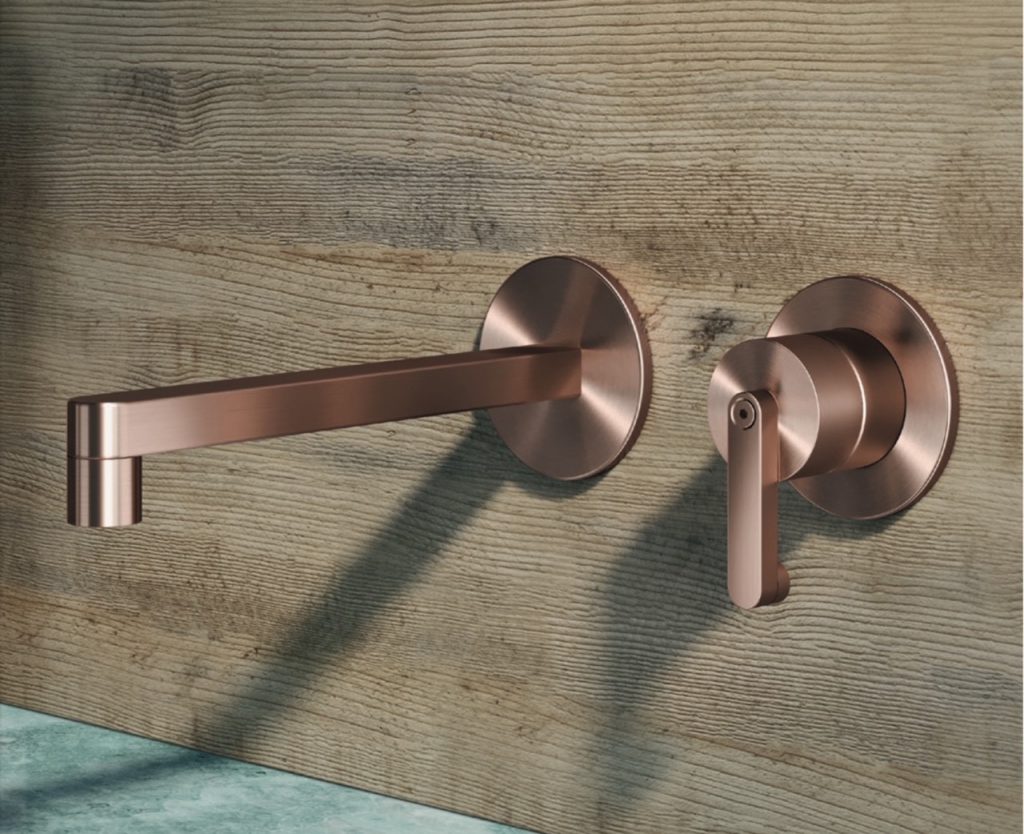
Looking after the Environment
PVD is an environmentally friendly treatment, causing no damage to the environment or risks to human health. In fact, it is non-toxic hypoallergenic and biocompatible.
GALVANIC TREATMENTS
Chrome and brushed nickel Galvanic treatments cover the product with a layer aimed at guaranteeing protection and hardness of the surface, as well as an aesthetic finish. Galvanic processes are carried out by immersing the component in a series of baths which, through electrolysis, activate in sequence degreases and cleans the deposit of nickel, in turn evens out the metal surface, further washing the chrome deposits.
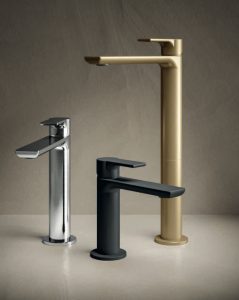
VARNISHES
The painting of the products is carried out in-house at GEDA’s varnishing department. GEDA’s finishes are guaranteed for 10 years against peeling. Each product undergoes a sandblasting treatment that allows better adhesion of the paint. This increases in resistance and the numerous tests carried out allow us to achieve a high-performance product that is highly resistant to impacts, scratches and salt spray tests.
The GEDA collections are available in a rich range of colours.
Four shades of grey for a palette inspired by one of the most current colour trends, but also Matt White, Matt Back and the precious satin varnishes: Gold, Copper, Brass and Gunmetal. Our taps are a perfect match for contemporary style bathrooms, and in synergy with the design choice they become an eye catching and sophisticated in detail.
In 2023, with the introduction of the new colours Light Dove, Medium Grey, Green Grey, Blue Grey and Gunmetal, GEDA has made an in-depth research into the latest interior design trends. Five shades of grey that are one of the most current trends in bathroom design and allow the taps and fittings to be coordinated with the surfaces, even creating sophisticated total colour effects.
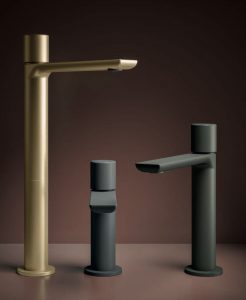
SPECIAL VARNISHES
Old Bronze and Dark Brass. A hand-made varnishing technique that makes each piece unique. The products are treated with painting and a manual satin finishing.
Each product is different, and unique, just like you.
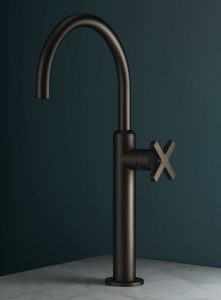
PVD
This treatment is obtained through an exclusive process: Physical Vapor Deposition.
A process of superior quality that creates a very thin film on the surface of the product. PVD is a treatment that does not cause damage to the environment and is free of risks for human health. Furthermore, this special finish increases the surface resistance of the product, guaranteeing a superior protection from the aggressive action of chlorides and household detergents, enhancing brightness and beauty.
PVD is available on GEDA products in the following varieties: polished carbon, polished roseè and polished gold.
